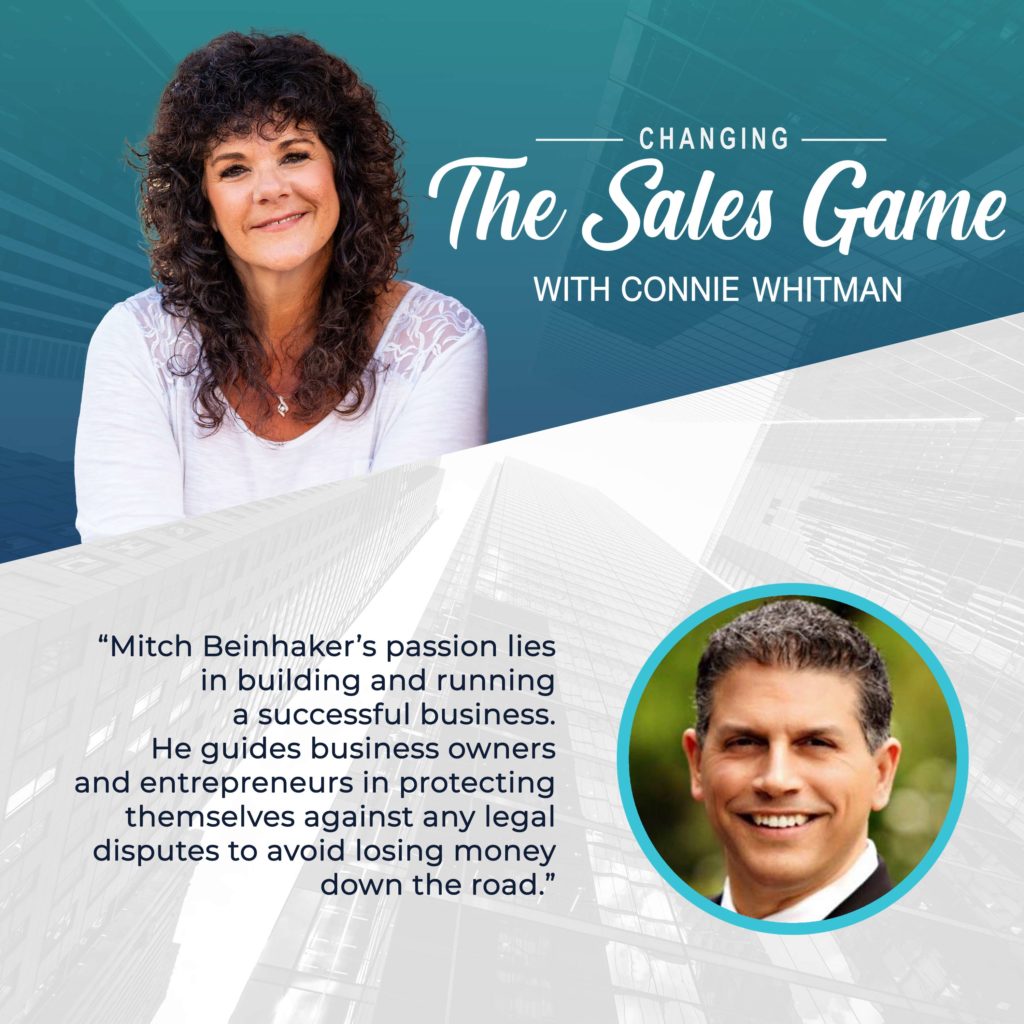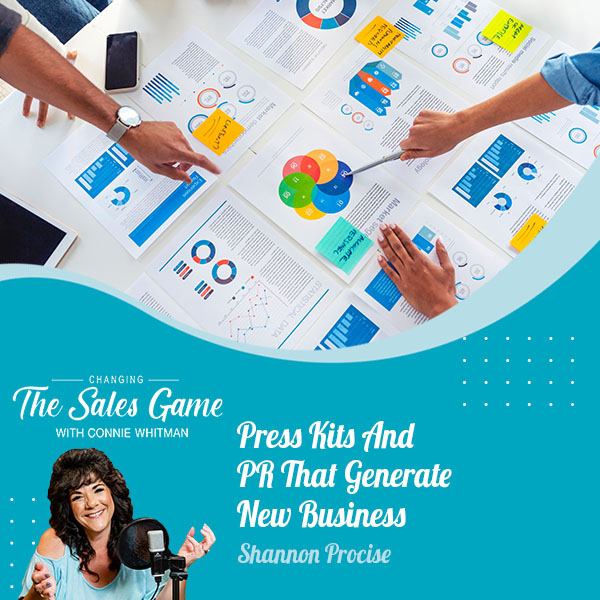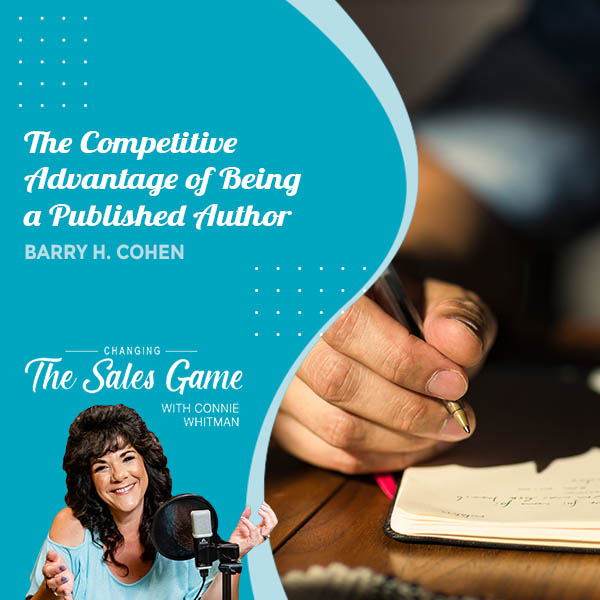A law is valuable, not because it is a law, but because there is a right in it.Henry Ward Beecher
Check Out These Highlights:
I know I have blind spots when it comes to business. Especially when it comes to legal matters. Just like many other business owners, I needed to hire an attorney to write my contracts for my corporate clients, the correct terms of agreement and privacy policy on my website, and the list goes on. My biggest fear is that I miss something that may come back to hurt me due to my innocence or ignorance. It won’t matter either.
Legal Things to Address To Protect Your Business With Mitch Beinhaker (EP. 99)
As always, thanks for joining us. I hope as you tune in, you get that my mission in life clearly is to change the word sales from something that is that icky and sleazy manipulation that we really do have to come from a place of love, care, and respect. It’s a choice. I hope my guests and I provide some ideas for how to navigate, again, always coming from love, care, and respect.
Of course, to help you on your journey, I have a free gift for you. I have a link to my Communication Style Assessment. You get two reports. One is spotlighting your natural communication superpowers, which is how people are perceiving you. You want to lean into that and leverage it. The flip side, you’ll get a report on your blind spot or your lowest score, which probably is more impactful. You will see how you are disconnected when communicating with others that could change your sales game to a big extent. Also, if you’re loving the show, please rate, review, and subscribe so you don’t miss an episode. I do read the ratings and the reviews, and I love reading your love notes. Thank you for all of those who have done so in the past.
My motivational quote for this episode is by Henry Ward Beecher. He says, “A law is valuable, not because it’s a law, but because there is a right in it.” I know I have blind spots when it comes to business and life in general, but definitely in business. Especially legal matters. Not my gym, not my background. Just like many other business owners, I needed to hire an attorney to write my contracts for my corporate clients, the terms of agreement, privacy notices, and the podcast that I can use this information.
Any way I choose all of that, you need a legal expertise to handle that. My biggest fear is that what if I miss something that could come back and bite me in the rear end down the road? Here’s the thing. You say, “I was innocent. I was ignorant.” No excuse, whatever your answers are as it relates to your legal situation and business.
I have an amazing guest. His name is Mitchell Beinhaker. Mitch Beinhaker is a Corporate Attorney and Business Advisor who runs a solo legal consulting practice, Beinhaker Law, and he represents business owners, entrepreneurs, executives, and professionals. Please help me welcome Mitch to the show. Thank you for being on. This is an important topic.
About Mitchell C. Beinhaker, Esq:
Mitchell is a corporate attorney and business advisor who runs a solo legal/consulting practice, Beinhaker Law, representing business owners, entrepreneurs, executives, and professionals.
How to Get in Touch With Mitchell C. Beinhaker, Esq:
I appreciate it, Connie. I was looking forward to talking about it.
The Importance Of Legal Counsel
I’m going to say small business owners because I think corporate have legal counsel on retainer or in-house. Do you find the small business owner that they don’t even know what to ask you?
As small business owners, we’re thrown into a world where we do things ourselves, especially to get started. I think you look at it that way when it comes to dealing with a lawyer. Only corporations deal with lawyers. Only large companies deal with lawyers. I think that it’s not until the business owner gets into trouble that they realize that they need legal counsel.
I’ve been doing this for more than 30 years. I’ve obviously reviewed and written a lot of contracts. I’ve dealt with a lot of situations that you, as the business owner writing one contract, besides the fact that you don’t know the law, just the things that you don’t think about. The misunderstandings and the disputes that you have to deal with when it comes to dealing with legal counsel and making better decisions for your business. It’s not something you should handle.
There are all these templates. Many years ago, before I opened my business, I was a trust officer at a bank. I had many positions. We didn’t have lawyers on staff, but we brought lawyers in all the time that were trust and estate attorneys because they knew that law and you know it changes constantly. I used to sell life insurance many years ago. Someone asked me about life insurance because they knew my background.
I said, “Here’s how it was. That doesn’t mean it’s how it is. You better talk to an attorney or an accountant because I don’t know how the laws have changed,” but I think it’s the same for us business owners. Laws keep changing. If we don’t have someone like you that we can reach out to to say, “I heard this. Am I affected?” even a simple question like that, because we don’t know if we’re going to be affected because we don’t know how to read the legal jargon. We need someone like you in our life.
Your point before about not knowing or “I didn’t realize,” that doesn’t hold water in court. You can’t tell a judge that. You’re a professional. You’re in business. You have to get licensed. You have to file with the state. You have pay your taxes. You have to do everything you’re supposed to do when it comes to dealing with the Department of Labor and all those types of things. You can’t really say, “I didn’t know. I didn’t know my people should have been W-2 employees instead of independent contractors.” That’s a very clear rule, which a lot of people violate. That’s not an excuse. They can’t tell the police officer, “I didn’t realize. I thought it was a 25 here,” and it’s a 55. Ignorance is no excuse.
There are situations where you’re just an individual and they’re going to give you a break. If you’re a business owner and you’re doing this for profit, you’re registered with the state and doing all the things you’re supposed to do, if you mess up, they’re going to hold your feet to the fire on it. That’s their job. That’s all they do. They don’t even have discretion. It doesn’t matter.

My communication style, we all have blind spots, so it’s okay because we have resources like you.
You can’t know what you don’t know. You rely on professionals who do this for a living. Taxes, too. As a business owner, if you’re a W-2 employee, you have very few deductions. Could you do it on your own? I guess. If you’re a business owner, you should not be preparing your own taxes. First of all, you don’t know what things you can take advantage of and you don’t know what you’re doing wrong.
I believe in professionals. Here’s the other thing too, Mitch. Why would someone hire me? I’m a professional in sales and I can help them, but do they need me? Some people do, some people don’t. If I’m a lawyer, I don’t need you. If I’m not a lawyer, I need you.
I think everyone needs you. I think some of the people don’t realize that they need you. That’s really it. Same with lawyers. They don’t realize what they don’t know until you come in and say, “What are you doing here?” Their life is then changed because they realize what you can do.
When I’m networking, a lot of times, you get into those little breakout rooms and people go, “I’m good at sales,” then they continue to vomit everything they do. I think, “Yeah, you’re good in sales.” It’s funny, your perception. What is the thing online that you can use?
LegalZoom.
“Let me go to LegalZoom.”
We’re breaking out in hives during this discussion because I hate LegalZoom.
I don’t like templates either, personally, when I train.
Here’s the problem with templates. It’s a good thing you brought that up. They may be right or wrong, but you have no idea why each clause is in there and whether you should include it because you have no experience. What’s the point? Even in the banking business, they don’t expect all the people preparing the documents when you borrow money to know all the documents. They use companies and services that they pay a fee to. They guarantee the accuracy of the documents because the bank knows they have to cover themselves and they can’t expect their employees to know everything they’re providing.
In my world, people say, “Just give me the script to read.” I don’t get scripts. I don’t believe in scripts. Your client is not a cookie-cutter. We have to customize every conversation. Are there some basic questions? Sure. I could give you a format or a framework to come from, but I will never give a script because I don’t know your situation and I don’t know your client’s situation. It’s very dangerous. Thank you for commenting on that. Why should we put things in writing? We hear that all the time, “Put it in writing.” Why?
I’ve talked to memory experts, and I’ve done a lot of studies on this. As much as we like to think that we can remember everything and we testify to it in court, and this is one of the reasons why it’s so easy to impeach a witness in court, is because we don’t remember things correctly. It’s not the way our minds work. Our minds are not a filing cabinet. Some people have very accurate memories, but even in other parts of their life, they don’t remember things. Things aren’t filed away in a special folder in your head and you pull it out. You have a box with stuff in it, and after a while, different things get stuck to other things. It’s like we’re all sticky notes and you swear that I was with you on this date and we went there.
You look at me and go, “Mitch, I was in Chicago at a business conference that we did.” I’m like, “We were?” You swear in your mind that that was the case. It is very rare that even amicable parties will remember a business dealing or an agreement between parties to be the same. It doesn’t happen that way. If you do things on a handshake, which is a very dangerous way to do business for a lot of reasons, the biggest reason is you’re both going to remember what happened differently. That’s why it becomes very dangerous not to put things in writing.
It is very rare even for amicable parties to remember every important information in a business dealing or an agreement between them. It just doesn’t happen that way. Share on XIt’s also an interpretive thing. You and I might remember the situation the same, but I may interpret what you’re saying differently than you interpreted what I was saying. If it’s in writing and it has certain clauses in there that say, “If there’s ambiguity in here, don’t hold it against me because I drafted the contract. If we have a dispute, we’re going to go to mediation before we go to court. This remains private. I’m not allowed to put disparaging remarks about you if we disagree on things.”
Putting Things In Writing
All that stuff becomes very important when there are misunderstandings and disputes. There will always be misunderstandings and disputes. Unless we’re both dead, that’s when things stop. As long as your mind’s working and thinking about things, not putting things in writing is a very dangerous way to run your business.
It’s funny when you were describing that, like you and I have a conversation. We remember the conversation, but you have filters and I have filters. Think about you go to a movie with your friends, you leave the movie theater, you go for a cup of coffee or something after, and you talk about the movie. In this pivotal moment, you’re like, “I couldn’t believe.” They’re like, “Why? That’s not what they meant by that.”
Ten Mistakes Most Business Owners Make
Same movie theater, same timing, same environment, two different perspectives because we have our filters. That is a good point with that. We’ve all had that experience going to the movies, and then you did have an argument over it that the other parts were wrong. “Were you not there watching?” It’s the same thing in business. We have to be really careful. I know that you talk about ten mistakes that most business owners make. Can we go through them slowly? I’ll probably interject a little bit, too and ask more questions. Is that cool if we go through those ten?
I don’t know if we should go through every single one of them, but there are general themes and general problems breaking down. One is obviously not putting things in writing. That’s big one. Another one and this follows the writing thing, is not having agreements between your partners when you form your business. If you have partners and you’re in business, if you don’t have an operating agreement, if you haven’t set down the rules that you’re using to run and operate your business, wait until the day where you’re breaking up and the attorney comes in and says, “Let me see your operating agreement.” You both look at each other and you have nothing. That’s what lawsuits are made of. That’s what costs you a lot of money.
Common other mistakes in the insurance world. I find that a lot of business owners don’t properly protect their businesses in terms of how they’re structured and the coverages that they have. They don’t keep their agents up-to-date when things change. If a claim happens, you notify the insurance carrier right away. I was going to get my haircut the other day. I get to my building where my barbershop is. There’s my friend who owns the barber’s shop and she looks at me. I go, “Why are you standing in the street? Why is there a firetruck over there?” “There was a fire in the building next door and the smoke got in there and they had to shut down.” I said, “You notify your carrier immediately because they may not cover you for certain things or there may be coverage that you don’t realize.”

Business owners make that mistake all the time. I’ve had businesses burned to the ground and the guy says, “I’ve been meaning to update my insurance with all my insurance agent and they only have $40,000 worth of coverage.” That was ten years ago when they started the business. They should have had $500,000 on the coverage.
Stay on insurance with me for a minute. There are a lot of service providers out there now, especially with COVID and Zoom. We’ve expanded our reach as business owners. When I was selling insurance, I had errors and omissions. Other than your equipment and stuff, what other things should you have from an insurance perspective?
Everyone should have a base of what’s called a BOP, a Business Owner’s Policy. It should have $500,000 of worth of liability coverage as well as any of the other contents and things like that. It might have loss of income. Some of them have cyber security and cyber insurance riders, but they generally tend to be weak. As a matter of fact, I just moved over. I took the cyber endorsement off of my business owner’s policy and I purchased a more comprehensive standalone cyber policy because if I get a virus, somebody gets a hold of files and they lock me out, ransomware, whatever, it could cost me money. Those are becoming more standalone.
There are Employment Practices Liability Insurance, EPLI. If you have a large organization and more employees, it’s definitely something you should look into so you don’t get a harassment claim or something that needs to be covered. Some of these policies are just paying the legal fees of dealing with the issue that really shouldn’t be an issue. Obviously, if you’re a licensed individual, you might need Arizona emissions and non-practice insurance, that type of stuff. Also, you want to make sure you’re not operating as a sole proprietor, that you’re an LLC and you’re properly insured as an LLC. You don’t end up personally liable for something that are unintended consequences.
The LLC keeps you out of how you’re chartered and your business is set up. Let’s say I have personal liability policies that should not be used?
Like an umbrella policy?
Yeah.
That generally doesn’t cover commercial activities.
The same thing. You could get a little $500,000 liability policy for the business part of it.
Correct. Generally, what you have is a homeowner or an auto policy, and then you get an umbrella. The umbrella adds maybe $1 million of coverage over your home, your auto, your boat, and whatever else. It usually doesn’t cover commercial, so you want to check with your carrier on those. There are commercial umbrellas, too, for people that need higher limits.
Also, if you own real estate, let’s say you bought a couple of homes and you’re renting them. First, they shouldn’t be in your name. You should put them in an LLC or multiple LLCs. Don’t assume that your personal umbrella policy covers insurance there. You want to make sure you have separate insurance for that. Maybe it’ll be covered by your umbrella if your carrier agrees to it. Maybe you need some other competencies. Don’t just assume. Find out what it’s doing.

That’s important because I think a lot of business owners buy commercial real estate, too and have tenants and other things. If you are renting what’s and we’re buying in our personal portfolios where you have rental properties. That’s another good point.
How many trips on the property that wipe you out?
What are some of the other things that you see like, “Again, I’m seeing this?”
I see a lot of failures on business owners to follow the labor laws. When you’re a smaller company, you don’t really think about it. As you hire people, every state has their own requirements. I mentioned before that a very common mistake is that a small business owner gets started and they have some virtual people. They have a virtual assistant. They have this and that. They’re paying them as an independent contractor. Maybe the virtual assistant has her or his own company. He or she is working for multiple people, just like I do as a lawyer, just like you do as a consultant. You give them an invoice in a 1099 at the end of the year, you pick up his income, and you pay your own expenses.
There are a lot of organizations and a lot of companies that have people on independent contracts that are set up as independent contractors, they pay them on a 1099, and they’re supposed to be W-2. You get an organization with 30, 40, 50 people that are on contracts instead of being paid on a W-2. By the way, it doesn’t matter if they’re seasonal. It doesn’t matter if they’re hourly. It doesn’t matter if they don’t work regularly.
If they work for you and you have control over what they do and they’re not paying their own expenses and they’re not doing this or that, and they certainly don’t have a separate company set up, they are a W-2 employee. I don’t care what you want to call them. If the DOL comes and you get audited, you can end up with multiple thousands of dollars in fines per employee.
If people work for you, you have control over what they do, and they are not paying their own expenses, they are considered a W2 employee. Share on XGood luck negotiating that one, which I’ve done, but it’s not easy. There are a lot of industries that have that practice, like private schools, after-school programs, and things like that where the teachers might be working in multiple places. They’re 1099, and that’s not correct. They’re W-2s at all the places where they work. That’s a big common mistake, not knowing the Department of Labor rules.
You said something, too that different states have different regulations and rules. I have international clients. How do I know if there are clients in California? Is the law based on New Jersey where we’re based or does it depend on the industry?
You’re not talking about clients. You mean about if you have employees, like virtual employees?
No, I’m saying clients that are international.
Clients are a little bit different. The clients are the issue more like, they’re clients of yours, so they want a contract with you. You want to give them some sort of an agreement. We’re talking in the United States. The laws will apply based on what your contract says. If you don’t have a contract and you get into trouble, generally, the state’s going to protect its own citizens. You’re going to have to deal with the state in which you’re doing business in.
Some of those issues have yet to be determined because we’re in such a world now that we didn’t have all these virtual employees. I can tell you that if you have overseas clients and you can contract with them and so forth, it’s probably going to be pretty hard to enforce as a small business owner to enforce a contract in China, England or Spain. It’s not going to be worth it. It’s a representation of what your agreement’s on. As for employees, you’re going to have to follow the laws where the person’s located. They’re not magically subject to the New Jersey laws because they’re working remotely. It’s not going to work that way.

I’m going to give you an example. My niece worked for a company. She went to them and said she wanted to move to Tennessee. She went to them very upfront and said, “We’re staying remote. If I move, am I going to get penalized?” Their only request was, they said, “You could do that, but if we have quarterly meetings or we have meetings that we need to physically be here, you just have to come back.” She’s like, “Absolutely. I will make sure. I’ll come early and work from up here because my sister still lives up here.” Now, that’s all changing. She’s still a W-2, but now she’s in Tennessee not paying the Jersey tax. Do you see what I’m saying?
She pays the tax where she’s located. They may have certain filings they have to do in Tennessee in addition to New Jersey, which is an issue. That’s why if you’re familiar with PEOs, employee leasing, what’s called co-employment, that becomes more palatable to a smaller organization that has employees in different parts of the country. You’re basically subcontracting out to another organization to handle that all for you than trying to do it yourself. If you got an employee in Montana, Oregon, Tennessee, and Texas and you’re in New Jersey, like you said, there’s no excuse to say, “I didn’t realize what state.” You shouldn’t be hiring people there.
Another business model for anybody reading that you think, “That sounds like fun to manage multiple people around the world.”
That’s what co-employment is.
It’s interesting you said before, too. Are you seeing the laws change exponentially now compared to pre-COVID? Now, COVID has put a whole different spin on business.
I haven’t seen a lot of that. I will preface it by saying I’m not an employment law attorney. I do nondisclosure agreements, employment agreements, basic stuff. I’ve negotiated with the DOL, but I’ll give you an example. During COVID, New Jersey Governor Murphy signed into law an even more stringent rule about a W-2 versus a 1099. The reason being is that the state is interested in protecting its citizens and its employees. They made it more difficult to qualify as a contractor and it was hard before.
In most situations, even if people have been contractors for a long time are not contractors. They’re employees. If an employee has a complaint, they’re not getting paid, they get to go to the Department of Labor. There’s a simplified hearing process. They can file it. They generally don’t need an attorney. If they’re a contractor, that does not apply. You’re kind of on your own, which is why the state doesn’t like the whole 1099 thing. I think they make more money, too.
I’m sure of that. Knowing your state is another big piece of the puzzle. Federal government, we all have to abide by. At your state level, there are little mini changes that you might be affected by. Really double-check.
There are other laws you’re scurrying accidentally, like in pension laws and benefits that people are supposed to be included on and aren’t because they’re listed as a contractor. Worker’s comp, they have to be covered. I had a client contact me and says, “The Department of Labor told me I got to put my contractors on worker’s comp.” I said, “Do they work for other people?” He goes, “I don’t think so.” “Do they pay their own expenses or have an LLC?” “No.” “They’re employees. I don’t care what you think.”
You’re violating laws. You don’t even know about it until you get a letter in the mail. Nobody likes it. It says, “Department of Labor. We are conducting this audit. Our records show this. We’re going to see on this date. Please have all these things available to us.” You’re like, “I don’t even know what half of those things are.” It’s not a letter you want to get.
We all have blind spots. When it comes to law, the laws change. They have to change. Cyber laws are changing. They have to change because of the technology. I’m not a lawyer. How do you keep up with it? You have to have someone like you. What are some of the other big mistakes you see, Mitch?
Some of the mistakes I see people do is that they don’t follow the formalities required by law. I’ll give you an example. When you set up an LLC or a corporation, which has an even more stringent downside of rules to follow that are set by statute, you have to pretend like you’re a corporation. You can’t set up your LLC for your company and then pay everything you can through them. Not even have a personal bank account. You run everything through the company.

Even if you are accounting for it properly, meaning you pay personal expenses, you don’t take them as deductions, you pick them up as personal income, you only deduct things that are legitimate. You’re still exposing yourself to personal liability. It’s what an attorney’s going to do. A good litigator’s going to look and say, “They’re going to subpoena your records. They want to see your personal bank records. They’re going to see your company’s bank records.”
When they see there are no personal bank records, they’re going to make a motion to what’s called pierce the corporate bail. Reach through the company to you personally, to your personal assets. You’re not getting any protection by not following the rules. It’s very important that you follow the formalities of running the business. A lot of people just don’t. They have one banking account, one credit card. They swipe it and just forget about it and send it to their CPA.
It’s so funny. I asked my accountant because I do a lot of speaking. I do the show. I have the YouTube channel. A lot of visible part of my branding is me. In 2022, I said, “I get my lashes done. Can I write that off?” He was like, “No.”
Just like you can’t write off your dry clean even though it’s for business.
I was not happy about that. I wanted my lashes to be covered. Just a funny aside. That’s another good one, the LLC formation, and then we pay everything thinking that, “I could just write everything off.” No, you can’t, even if it’s related.
It’s more of an art than a science to taking deductions. As a business owner, you get to make your money, spend your money, pay taxes on what’s left over. When you’re a W-2 employee, they take your taxes up front and you got to pay it right away. There are some advantages of being a business owner, but you got to be able to defend that if you get audited and when you just submit your papers.
There are some advantages to being a business owner. But you need to be able to defend it if you get audited and when you submit your papers. Share on XAnother one that I’m a big stickler of and a big proponent of, and I know you and I talked about this, is not having a written working business plan. Some people write basic business plans. They get started, it goes on the shelf, and they never see it again. Other people don’t write a business plan at all. They might have notes.
We go back to the whole thing about our memories and not remembering things. You put your ideas in writing, you develop them into a business plan. Hopefully, over time that business plan becomes a working document for the company. Maybe it goes from being a business plan to being a handbook for the employees, an operations guide for the company, a financial guide for all the finances of the business, and a marketing plan.
You grow that over time as you grow your business. A lot of people don’t. You can start with a one-page, the lean canvases, a bunch of different ones. If anybody’s reading, by the way, send me an email, I’ll be happy to send them a template to write a business plan. I have one that’s as small as four parts, but it’s really like a 10 to 12-part template. There are other ones out there. Score has a very good one, which I based mine on. There’s a lot if you did a search for business plan templates, but that helps you through a lot of problems.
You talked about blind spots. When you work out a business plan properly, it helps you see things down the road that could happen that you don’t anticipate when you have all this cashflow coming in and you’re really not making any money and you have no idea. That’s what happened with COVID. The cashflow stopped and all of a sudden, people were like, “What do you mean we’re not making money? How are we paying our bills?” It’s because we’re paying our bills with last month’s money, and then it just kept coming in every month. Once it hits a brick wall, good luck. A big proponent of written business plans are the ones that are usable, workable, and are continually changing.
Isn’t that business? As we were saying, laws change too. A business changes. I am not doing what I did twenty years ago. To some extent, yes, but it’s exponentially more than when I opened my doors 21 years ago.
Of course. There are people that are successful despite themselves, meaning that they’re not really doing a business plan. They have a lot in their head, get through it, and figure it out. We know that the rates of business failure is very high. If you segregate the people that do the planning, write things down, have a good business plan, and follow that, their success rate is very high because they’re part of the 30% that succeed. The 70%, a lot of them fail to plan, don’t see the blind spots, don’t put things in writing, don’t learn sales and how to do things properly like you teach them, and they struggle. They don’t learn social media and they don’t hire professionals to help them as they grow.
The rate of business failure is very high. By segregating people who do the planning and write things down, you can be part of those who succeeds. Share on XMy best business owners know exactly how much business they have to do before they add a new person or bring a new team on. They know their numbers so well. They don’t know that because they’re some genius and they’re doing calculations in their head. They have it in writing. They keep track of it and they write it down. They check it. It’s not from soapbox.
I hear you because it’s the same thing with sales. If I say to some business owner, “Show me what your income stream looks like. Show me your packages. Where’s the money coming from? Do you have different offers?” they go, “Uh.” “What do you sell the most? What’s your close ratio?” It’s like, “You’re marketing and you’re watching the clicks on the back, but what is that translating into business?” If you’re doing this marketing and you’re getting no results, why are you doing that marketing?
I have no way to measure anything.
“It’s because I was told to do Facebook ads.” “Are they working for you?”
Yeah. You have no idea.
I just think sales. I understand what to ask. You understand law and the business team. I love that. By the way, I do want a copy of that. I should update mine. Now that you said that, that was a low priority. I’m thinking. I’m running. I’m doing, I know what I’m doing.
Your Business Plan
It’s time to take a step back then. By the way, even solopreneurs like us need a business. I’ve even had attorneys come to me. I had a business plan challenge a couple of summers ago where people were logging on once a week. It was a one-week challenge to write your business plan. It was every day I would release parts or whatever. Not many people got through it, by the way. It’s like two people. I had attorneys contact me like, “Should I do this? What do I need a business plan for?” I go, “What do you do this for, a hobby?”
I think your point’s a very good one. People don’t track their business to be able to make the sales decisions, marketing, pr decisions that are effective. The ones that do it are making decisions that they know will end up in good results. Other ones that they drop because they’re not working. You can’t just call up your CPA and say, “What do we do? We did $1 million or $2 million. I guess things are going well. We did $1 million or $2 million of gross.” If half of your budget’s going towards things that aren’t working, you’re just wasting money. Maybe $2 million’s not great. Maybe you should be doing $5 million, but you’re blind. As you said, blind spot is the word of the day.
People don’t track their businesses to be able to make effective marketing decisions. The ones that do it are making decisions that will yield good results. Share on XYou know what cracks me up, too? We are out of time, but I need to mention this. A lot of my clients will go in and say, “Let’s talk about what culture you want to create.” A lot of times, I’ll say, “What’s your follow-up system?” We don’t need to follow up. “Why don’t you need to follow up?” “It’s because we have enough business coming in. We’re meeting our goals.” My response is, “That’s great. Since you’re meeting your goals, what if we could get double the production, zero cost, zero additional cost, and zero additional effort, just having better conversations?” “I don’t think we need that.”
Why are you here?
The other thing, too is what I’m seeing now, especially post-COVID, when they have that mindset, people are leaving in droves because they’re like, “I’m not going anywhere. I’m not making more money. Personally, there’s no career advancement here because the executive team sometimes doesn’t see the forest from the trees.” The business plan is such a dynamic piece of paper. It’s really dynamic. You should be adding and changing.
If you have a bigger organization like that, people should be involved with it. We can go on for hours.
We’re at the tip of the iceberg. Mitch, this was great. Thank you so much. I hope it got everybody who has a business, even my corporate clients and my execs that tune in. I really hope that we have all our ducks in the row because we certainly don’t want to find out and lose money because we work so hard. Our passion is our business. Our passion is our career. To make a mistake because it’s in a blind spot because you didn’t know what question to ask and you didn’t hire the professional, whether it’s marketing this conversations law or sales, you’re leaving money on the table. You’re going to lose money down the road. Protect yourself. We can be proactive with this easily.
Of course, here’s the deal. I love Mitch. I think he’s one of the coolest attorneys I’ve ever met. I think you need more Mitch in your life. Go to BeinhakerLaw.com. If you want to talk to Mitch directly and you want that business plan, email him at Mitch@BeinhakerLaw.com. Reach out to him. Have a conversation if you think that you might have some exposure. Mitch is a cool guy. Honestly, he’s great to hang out with.
I’m always available to talk to.
Thank you so much. We talked about so many good things. I hope it got everyone’s juices flowing to say, “I think I need help with this,” or he mentioned that, I don’t even know what it is, very dangerous not to know something that we talked about. Pick up the phone or email Mitch and have a conversation. Mitch, thank you again. Always good seeing you, my friend.
Thanks for having me.
A pleasure. I hope you will join me weekly as we question, build, and discover together that growing your business, growing your career, protection is needed. We have to make sure that our legal documents, all the privacies, and all those things are in place. We don’t want to make a silly mistake that could cost us money. Money is time. Time is money. Use Mitch, reach out to him and hopefully, he can help you with whatever your situation is.
Thank you again. As always, I’m honored to have you on this journey of business and sales and life with me. I hope that my guests and I provide usable tools and usable strategies that you can implement immediately. A business plan is your first plan of attack. Also, if you’re not sure if your documents are up-to-date, please reach out to Mitch. Don’t be foolish. Don’t be silly. Utilize the resources that I hopefully constantly bring to you to help you move the needle of whatever you’re going through in your life of business. Thank you for tuning in. I love you all. I’m honored that you are here. Thank you to Mitch for being such a great guest. Have an awesome week, everybody. See you next time.
Important Links
- Communication Style Assessment
- Beinhaker Law
- YouTube – Connie Whitman
- Template – Free Business Plan Template
- https://Linktr.ee/conniewhitman
- https://ChangingTheSalesGame.mykajabi.com/All-Star-Community
Stalk me online!
- Connie’s Website
- Connie’s LinkTr.ee
- Connie’s #1 International Bestseller Book – ESP (Easy Sales Process): 7-Step to Sales Success
- Download the FREE Communication Style Assessment
- Join our All-Star Community
Subscribe and listen to the Changing the Sales Game Podcast on your favorite podcast streaming service or YouTube. New episodes are posted every week on Web Talk Radio. Listen to Connie dive into new sales and business topics or problems you may have in your business.

 Mitchell is a corporate attorney and business advisor who runs a solo legal/consulting practice, Beinhaker Law, representing business owners, entrepreneurs, executives, and professionals.
Mitchell is a corporate attorney and business advisor who runs a solo legal/consulting practice, Beinhaker Law, representing business owners, entrepreneurs, executives, and professionals.


